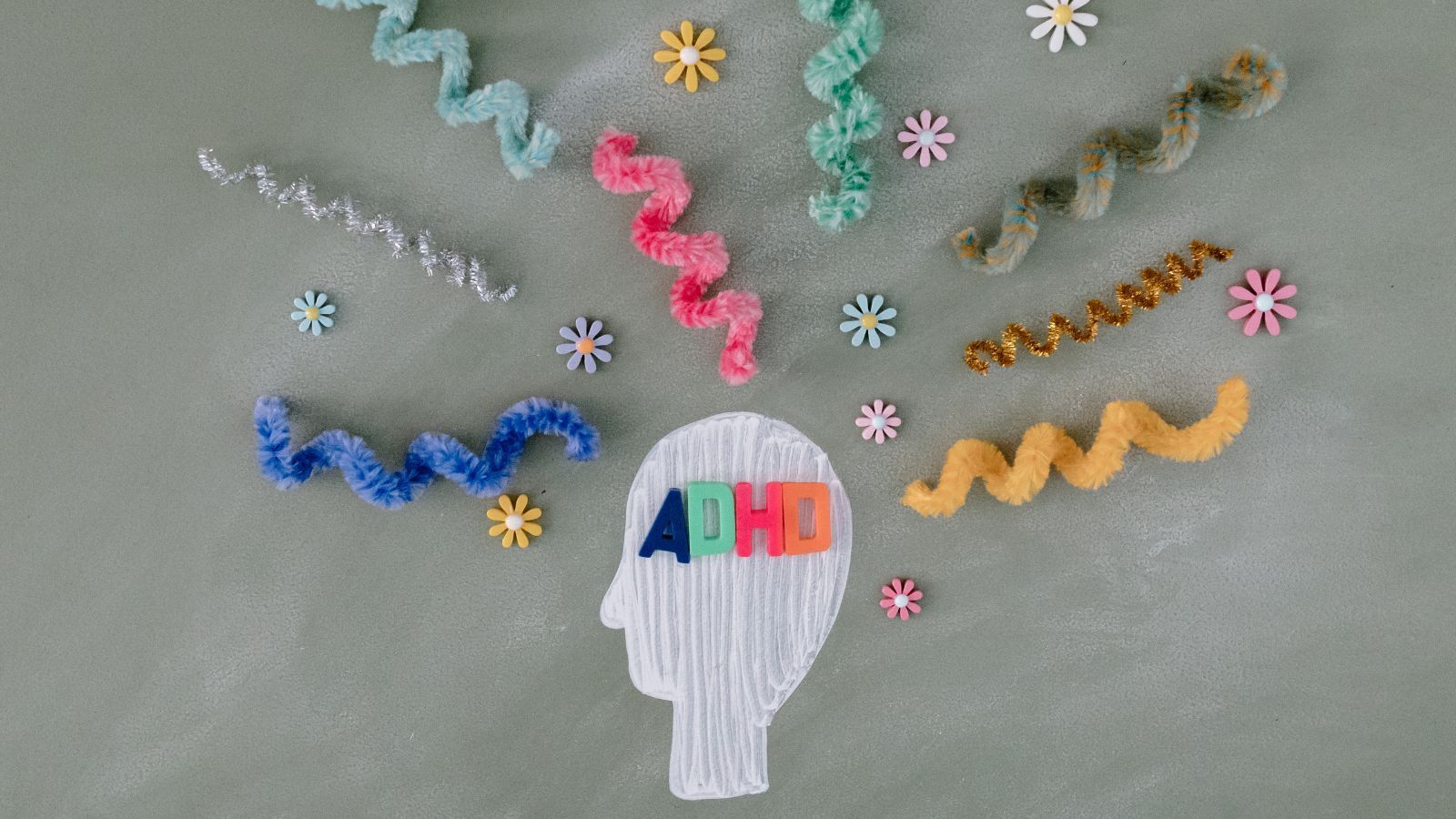The Link Between ADHD and Substance Abuse: Strategies for Dual Recovery
What is ADHD and How Does It Affect the Brain?
Attention-Deficit/Hyperactivity Disorder (ADHD) is a neurodevelopmental condition that affects focus, impulse control, and emotional regulation. It is characterized by persistent inattention, hyperactivity, and impulsivity that can interfere with daily functioning. ADHD is linked to differences in brain chemistry, particularly involving dopamine, a neurotransmitter responsible for motivation and reward.
People with ADHD often struggle with delayed gratification and have difficulty regulating emotions, which can lead to impulsive decision-making. These challenges can make it harder to manage stress, maintain routines, and resist temptations—all of which play a critical role in addiction recovery.

The Connection Between ADHD and Substance Use Disorder
Research has shown that individuals with ADHD are significantly more likely to develop substance use disorders (SUDs) than those without ADHD. This is largely due to the brain’s struggle with impulse control and emotional regulation. Many people with ADHD turn to substances as a way to self-medicate, attempting to calm their racing thoughts, increase focus, or alleviate restlessness.
Additionally, impulsivity plays a major role in substance use. Those with ADHD may engage in risk-taking behaviors without considering long-term consequences, making them more susceptible to experimenting with drugs or alcohol. Over time, these patterns can evolve into dependency, creating a cycle that is difficult to break.
Commonly Abused Substances Among People with ADHD
Individuals with ADHD often gravitate toward specific substances based on their effects on the brain. Some of the most commonly abused substances include:
Stimulants (Adderall, Ritalin, Cocaine, Methamphetamine):
Since stimulant medications like Adderall and Ritalin are prescribed for ADHD, they are sometimes misused, leading to dependency. Illicit stimulants like cocaine and methamphetamine produce similar effects by increasing dopamine levels.
Alcohol:
Many individuals with ADHD use alcohol to slow down their racing thoughts and ease social anxiety. However, alcohol impairs judgment and increases impulsivity, which can heighten risky behaviors.
Marijuana:
Some people with ADHD turn to marijuana for its calming effects. While it may provide temporary relief, long-term use can impair motivation and cognitive function, making it harder to maintain recovery.
Nicotine:
Cigarettes and vaping products are often used as a quick dopamine boost. Unfortunately, nicotine addiction can reinforce other substance use patterns, making it harder to break free from addiction.
Understanding which substances are commonly abused can help individuals in recovery recognize their triggers and develop healthier alternatives.
Challenges of Treating ADHD and Addiction Simultaneously
Treating ADHD alongside addiction presents unique challenges. Many traditional addiction recovery approaches emphasize discipline, structure, and delayed gratification—areas where individuals with ADHD often struggle. Without proper adjustments, treatment plans may not fully address the needs of someone with both conditions.
Additionally, ADHD symptoms like impulsivity and difficulty focusing can interfere with recovery efforts. A person may have trouble sticking to a treatment plan, attending meetings consistently, or managing emotions in a healthy way. Without addressing ADHD alongside addiction, the risk of relapse remains high. That’s why integrated treatment that considers both conditions is essential for long-term success.
Medication Management in Dual Diagnosis Treatment
One of the most complex aspects of treating ADHD and substance use disorder together is medication management. Many traditional ADHD medications, such as Adderall and Ritalin, are stimulants that carry a risk of dependency, making them a controversial choice for individuals in recovery.
For those who require medication, healthcare providers may explore alternatives such as:
Non-stimulant ADHD medications (Strattera, Intuniv, Kapvay):
These medications help manage ADHD symptoms without the same risk of addiction.
Medication-Assisted Treatment (MAT) for addiction:
If an individual is recovering from opioid or alcohol addiction, MAT options such as naltrexone or buprenorphine may help stabilize recovery while addressing ADHD-related challenges.
Holistic and behavioral approaches:
In some cases, therapy, exercise, nutrition, and mindfulness practices may be enough to manage ADHD symptoms without medication. The key is working closely with a doctor to find a balanced approach that supports both ADHD management and sobriety.
Therapeutic Approaches for ADHD and Addiction Recovery
Because ADHD and addiction both impact impulse control and emotional regulation, therapy plays a crucial role in recovery. Several evidence-based approaches have proven effective:
Cognitive Behavioral Therapy (CBT):
Helps individuals recognize and change negative thought patterns that contribute to impulsive behaviors and substance use.
Dialectical Behavior Therapy (DBT):
Focuses on emotional regulation and distress tolerance, helping individuals manage ADHD-related frustration without turning to substances.
Mindfulness-Based Therapy:
Encourages present-moment awareness, reducing impulsive decision-making and helping individuals cope with cravings.
Behavioral Coaching and Organizational Therapy:
Teaches time management, goal-setting, and self-discipline—essential skills for individuals with ADHD in recovery. By combining therapy with other recovery strategies, individuals with ADHD can develop long-term coping mechanisms that promote both sobriety and mental well-being.
The Role of Structure and Routine in Dual Recovery
For individuals with ADHD, maintaining structure can be challenging, but it’s also one of the most effective tools for preventing relapse. A lack of routine can lead to disorganization, impulsivity, and emotional instability, all of which increase the risk of substance use. Building a structured daily schedule helps create stability by:
Setting clear expectations:
Having planned activities reduces uncertainty and minimizes impulsive decision-making.
Creating consistency:
Regular wake-up times, meal schedules, and exercise routines help regulate energy levels and emotions.
Improving accountability:
Sticking to a schedule makes it easier to track progress in recovery and remain committed to sobriety.
Time management strategies, such as using planners, setting reminders, and breaking tasks into small steps, can make it easier for individuals with ADHD to stay on track in their recovery.
Building Healthy Coping Mechanisms for ADHD Symptoms
Because individuals with ADHD are prone to impulsivity and emotional dysregulation, developing alternative coping mechanisms is essential for long-term sobriety. Some effective strategies include:
Exercise:
Physical activity releases dopamine naturally, helping to improve focus and reduce hyperactivity. Activities like yoga, weight training, and running can be particularly beneficial.
Nutrition:
A balanced diet rich in protein, omega-3 fatty acids, and whole grains can support brain function and stabilize mood.
Creative Outlets:
Engaging in art, music, or writing provides a healthy way to channel restless energy and emotions.
Stress Management Techniques:
Practicing deep breathing, meditation, or journaling can help reduce anxiety and improve emotional regulation. These coping mechanisms not only support ADHD management but also serve as relapse prevention tools by providing constructive ways to handle stress and triggers.
The Importance of Peer Support and Community in Recovery
For individuals with ADHD, social support plays a crucial role in maintaining sobriety. ADHD can sometimes lead to feelings of isolation, especially if past behaviors have strained relationships. Finding a recovery community that understands neurodiversity can provide a much-needed sense of belonging and accountability. Some effective peer support options include:
ADHD-Specific Recovery Groups:
Some support groups cater specifically to individuals with ADHD and substance use disorders, addressing the unique challenges they face.
12-Step and Non-12-Step Programs:
Groups like Alcoholics Anonymous (AA), Narcotics Anonymous (NA), and SMART Recovery offer structured support and a network of like-minded individuals.
Online Communities:
Virtual support groups can provide consistent motivation and advice, particularly for those who struggle with in-person meetings. By engaging with a supportive community, individuals can develop stronger social skills, receive encouragement, and reinforce their commitment to long-term recovery.
Long-Term Strategies for Managing ADHD Without Substances
Sustaining recovery while managing ADHD requires long-term strategies that promote stability and personal growth. These strategies include:
Lifestyle Modifications:
Regular sleep, nutrition, and exercise routines help maintain mental clarity and emotional balance.
Ongoing Therapy and Coaching:
Continued participation in therapy or ADHD coaching provides guidance and accountability.
Mindfulness and Emotional Awareness:
Techniques like meditation and self-reflection help individuals recognize patterns and prevent impulsive decision-making.
Advocating for Personal Needs:
Whether at work, in relationships, or in daily life, learning to communicate personal challenges and seek accommodations can make life more manageable.
By focusing on sustainable strategies, individuals can create a fulfilling life that supports both their recovery and their ADHD management.

FAQs About ADHD and Addiction Recovery
Why are people with ADHD more likely to struggle with addiction?
ADHD affects impulse control, emotional regulation, and dopamine production, making individuals more prone to risk-taking behaviors and self-medication with substances. The struggle to manage focus, restlessness, and stress can lead to using drugs or alcohol as a coping mechanism.
Can someone with ADHD recover from addiction without medication?
Yes, but it depends on individual needs. Some people manage their ADHD symptoms through therapy, lifestyle changes, and behavioral strategies. Others may benefit from non-stimulant medications or carefully monitored treatment plans. A professional can help determine the best approach.
Is it safe to take ADHD medication in recovery?
It can be, but it requires careful supervision. Some ADHD medications, particularly stimulants, have addictive properties. Many individuals in recovery explore non-stimulant options or alternative treatments to manage their symptoms without increasing relapse risk.
How can ADHD symptoms interfere with recovery?
ADHD symptoms like impulsivity, difficulty with structure, and emotional dysregulation can make it harder to stick to a recovery plan. Individuals may struggle with attending meetings, following schedules, or handling stress, increasing the risk of relapse if not properly managed.
What are the best therapies for ADHD and addiction recovery?
Cognitive Behavioral Therapy (CBT), Dialectical Behavior Therapy (DBT), and mindfulness-based therapies help individuals develop coping skills, manage impulses, and build self-awareness. ADHD coaching and structured therapy sessions can also provide tailored support.
Get the Support You Need for ADHD and Addiction Recovery
Struggling with both ADHD and addiction can feel overwhelming, but you don’t have to navigate it alone. Woodhaven Residential Treatment Center offers specialized programs tailored to dual diagnosis recovery. Contact us today to learn how we can help you build a balanced, substance-free life.













